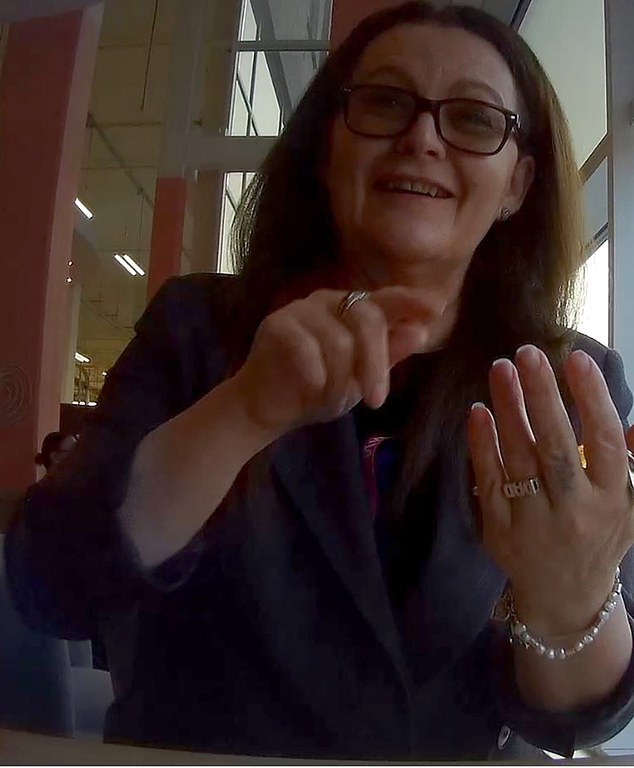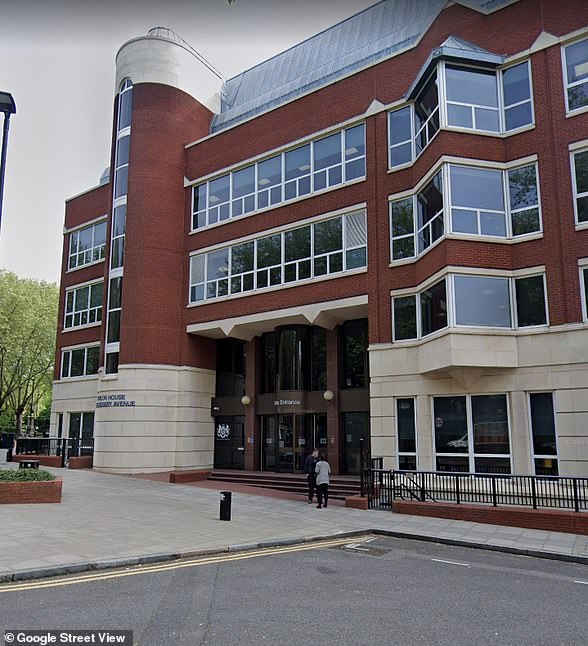Home Office translators are running a lucrative scam to spring illegal immigrants from detention, an undercover Mail investigation has discovered.
Interpreters charge £3,000 to act as witnesses to lie to a judge and secure bail for Albanians caught coming into the UK with fake passports or on small boats and lorries.
The bogus guarantors vouch for the immigrants who they promise the court will stay at their home if released.
But in reality they have no connection with the detainees they testify on behalf of and are happy for them to live anywhere – including beyond the control of the authorities – if bailed without a tag.
Last night the Home Office launched an urgent investigating and promised ‘prompt and decisive action if necessary.’
The Solicitors’ watchdog also started a probe after a lawyer told our undercover reporter he could take the case despite being told the guarantor was being paid and had no known connection to the migrant, explaining he would prepare them for ’what is expected of them in court’.
The woman organising the scam boasted it was ‘100 per cent’ successful.
She explained because she and the guarantor she would arrange both worked as freelance translators for the Home Office they knew ‘everything’ about how the immigration system worked from the inside.

Freelance Home Office translator Eglantina Legisi told an undercover reporter that for £3,000 he could hire ‘fake guarantors’ to lie to judges and vouch for immigrants during bail hearings

Ms Legisi, who herself arrived in the UK on the back of a lorry, appeared on primetime TV in her homeland to criticise the treatment of Albanian migrants in the UK – even as she plotted with our reporter to dupe the British authorities

Ms Legisi met our undercover reporter, who posed as the friend of an illegal immigrant who needed a guarantor for a bail hearing, near her home in South East London
Bogus guarantors and the detained migrants are given ‘scripts’ of what to say and shown pictures of each other to dupe judges into believing they have a connection, she said.
The guarantors pay a surety, usually of £1,000, which has also been paid to them in advance by the illegal migrant or their relatives.
When the undercover reporter raised concerns about the judge suspecting the fraud, she scoffed: ‘Do you think the government care? Come on, please.’
Her illicit operation was one of several fake guarantor schemes the Mail found being run by Albanians in the UK in what has become a booming market to meet the scores of immigration bail applications going to court every week.
Our investigation also found:
:: The Home Office translator organising the scam appeared on primetime TV in her homeland to criticise the treatment of Albanian migrants in the UK – even as she plotted with our reporter to dupe the British authorities.
:: Checks on guarantors during immigration bail hearings often take just a few minutes and involve a few basic questions.
:: Guarantors often dial into court on their mobile phones while sitting in cars and bail is granted even when their answers to questions from the Home Office representative are inaudible and their explanation for large sums of cash paid into their bank accounts taken at face value.
:: Other Albanians post videos on social media showing how to cut off tracking tags sometimes imposed as part of immigration bail conditions.

The scam means immigrants who have arrived in the UK on small boats, backs of lorries or using fake passports can pay a stranger to vouch for them in court and say they will live with them

Ms Legisi said the scam was ‘100 per cent successful’ because her work translating for the Home Office, police and the courts meant she knew ‘everything’ about how the immigration system worked from the inside
Home Office legal guidance for immigration judges state that a ‘Financial Condition Supporter’ who guarantees bail for immigrants in detention centres must be a UK based adult with indefinite leave to remain who has a ‘personal connection with the [detained] person, or be acting on behalf of a reputable organisation which has an interest in the person’s welfare.’
Judges should assess the ‘reliability and standing’ of any Financial Condition Supporter and, where appropriate, whether the migrant has a suitable settled address before granting bail, the guidance says.
But families of migrants in detention routinely post requests for guarantors on Facebook groups set up for Albanians in the UK, often stressing urgency as their relative is due to be deported imminently.
Eglantina Legisi, a UK based freelance interpreter who via translation agencies does work for the Home Office, courts and police, as well as for a solicitor involved immigration cases, responded to three of these requests urging those needing a guarantor to get in touch with her.
The interpreter, who herself came to the UK smuggled in the back of a lorry after using a fake passport to escape Albania, subsequently explained how the scam worked to an undercover reporter at a meeting near her home in Welling, Kent.
She told the journalist, who posed as the friend of an Albanian in detention after being caught entering the UK illegally, that for £3000, plus £1,000 for the surety, he could hire another interpreter who did work for the Home Office to act as a guarantor.
Ms Legisi reassured the reporter not to be ‘scared’ about the scam being discovered, saying said she and the solicitor would brief them ahead of the bail hearing and they would only be asked a few basic questions at the hearing.
As long as he was bailed without a tag he could live anywhere and unofficially work, she added.
She said the solicitor she would refer the case to knew they would be using a fake guarantor and ‘everything’ they were doing.

Shadow Home Secretary Chris Philp branded the scam a ‘disgrace’ and called for urgent action after the Mail expose

Ms Legisi responded to three posts requesting bail guarantors on Facebook groups set up for Albanians in the UK

Hassan Malik, solicitor from HM Legal Ltd, said he was happy to proceed with a bail application despite the reporter three times raising his concern that the immigrant and guarantor would not know each other, and being aware that the guarantor was being paid £3000
In a later meeting with Hassan Malik from HM Legal Ltd at his offices in Rainham, Essex, he was happy to proceed despite the reporter three times raising his concern that the migrant and guarantor would not know each other, and being aware that the guarantor was being paid £3000.
He told us he would charge £3,500 in fees and the reporter would need to discuss directly with Ms Legisi about the guarantor and ‘whatever she’s asking for that’.
Up to 12,800 Albanians who entered the UK illegally broke their bail conditions between January 2022 and May 2023.
Shadow Home Secretary Chris Philp said: ‘These reports are a disgrace.
‘These interpreters are paid to maintain the integrity of the system, but are in fact cheating the system and cheating the British public – often to help illegal immigrants stay in the country.’
He called for the translators to be ‘immediately’ fired and an investigation for suspected fraud and contempt of court.
‘The whole immigration system is being exploited by illegal immigrants on an industrial scale and radical reform is needed.’
A Solicitors Regulation Authority spokesperson said: “All solicitors must meet the high professional standards the public expects.
‘This report raises serious concerns.
‘We are investigating, and if we find evidence of wrongdoing, we will take action to protect the public.”
Mr Malik denied any wrong doing saying he did not know about any payments to the guarantor who he said he had been told would know the detainee because they were both Albanian. He said Miss Legisi did not work for his firm and her comments did not represent his or the firm’s position.
Ms Legisi did not respond to repeated request for comment.










